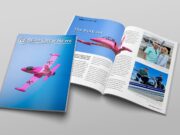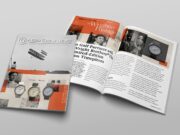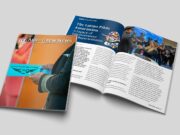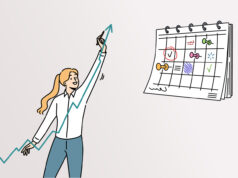
Whether you are a student pilot working towards your private-pilot certificate or a 4.000-hour ATP going for a captain upgrade, you are expected to be evaluated for your performances in a practical test environment, and you are likely to experience a fear of checkride failure. Everyone facing a flight evaluation experiences some level of nervousness and anxiety. Studies show that a bit of anxiety can enhance your performance. However, for some people, this experience leads to discomfort that inhibits their performance. Do you suffer from this form of performance-related anxiety? You are not alone. Fortunately, you can influence it yourself. Here are seven practical strategies:
Healthy Tension vs. Negative Fear of Failure
It is common to feel nervous and anxious when going into a checkride. Studies show that healthy tension or so-called ‘positive anxiety” can be helpful. It can help increase motivation to go the extra mile and perform well. However, sometimes the tension gets too high. When you are under pressure and feel judged, you can develop an unrealistic fear of the task. The physical responses are comparable to life-threatening situations:
- Your brain produces chemicals such as adrenaline, and your heart rate increases.
- You start sweating.
- You want to remove yourself from the situation.
The urge to escape inhibits the capacity to think clearly, causes the loss of concentration, and can lead to hyperventilation or even blacking out. This “negative anxiety” is not conducive to carrying out your task.
1. Focus on Learning Instead of Performing
Those who consider the end goal to be the most important tell themselves they are not allowed to make mistakes. People who are afraid of making mistakes deprive themselves of the opportunity to learn, and making mistakes is connected to learning. Those who focus less on the result and more on the process create more space to learn new things. When preparing for a checkride, do not set performance goals, such as: “I want to do better than my colleague,” but rather learning goals: “I want to be better at …” or “I want to finish this section by …” And if something does go wrong during the process, ask yourself the constructive question, “What can I do better next time?”
2. Reduce External Pressure
Even though people often like to share important life events with friends and family, sharing your scheduled checkride might increase the external pressure of having to perform. Instead, consider only discussing the evaluation date with only a few with whom you feel most comfortable. When you pass, feel free to share with everyone you want to know about your accomplishments!
3. Write Worries Down
Right before the checkride, set a timer for ten minutes and write down your thoughts and worries on paper. It seems counterintuitive, but a study found that students with test anxiety scored one point higher when writing about their anxiety for ten minutes prior to an essential exam than their classmates who kept their worries to themselves. Your nerves are trying to tell you something, so ask yourself:
- What makes me nervous?
- Has this happened before?
- What happened then?
- What did I think during that time?
- How did I improve myself after that?
4. Visualizing
Visualize how you want to be in a particular situation, how you want to think, how you want to feel, and how you want to behave. Imagine yourself being in the stressful situation of a checkride. Next, visualize how you want to feel. Imagine it vividly and feel it.
You are now mentally practicing and preparing your body for the actual situation. When you go into the checkride, you create a new scenario where you can feel differently, have different thoughts, and behave differently.
5. Box-Breathing Exercise
Box breathing, or 4×4 breathing, is a simple yet powerful breathing exercise that helps you relax in intense situations. The exercise consists of the following steps:
- Breathe in for 4 seconds.
- Hold your breath for 4 seconds.
- Exhale for 4 seconds.
- Hold your breath for 4 seconds.
- Repeat these steps for as long as you want.
By consciously breathing, you take your brain and body out of survival mode, also known as fight-or-flight mode. This shift has many advantages:
- Less production of stress hormones such as adrenaline and cortisol
- Positive effects on your emotions and mental well-being
- Reduces symptoms of anxiety and depression
- Helps you focus
6. Reframe
You have successfully performed similar flights and maneuvers various times before, so think of it as just another flight. This event is called a checkride, because you are being evaluated on your skills that other instructors have already endorsed under their own accreditation. Therefore, the examiner assumes that you will be good enough to pass. Another way to think of your checkride is to think of it as a confirmation of your ability to be a safe pilot. After all, a checkride evaluates your ability to fly safely since you would not want to fly if you were not safe. In the unfortunate event of failing the checkride, reflect on it in a constructive way instead of defeating your self-esteem; the examiner found a deficiency in your skills that you now have the ability to work on to become a better and safer pilot. Even the day before a checkride, clearing your mind and relaxing your body is a good idea. Watch a comedy, have coffee with friends, or go for a run. Distracting yourself with something fun helps relax you and improve your sleep.
7. Eat Healthy
Eating healthy is always important, but just before a stressful event, you can add extra self-care for your brain by putting healthy food on the menu. Ingredients that contain vitamins B, E, or K or are rich in Omega 3 help keep your brain in shape. Examples are oily fish (salmon, mackerel, trout), broccoli, pumpkin seeds, oatmeal, blueberries, dark chocolate and nuts.
8. Prioritize Sleep
Though it might seem like a good idea to continue studying the night prior, do not overdo it. Prioritize your sleep. Prepare a brief summary of the main points in advance. Read this over right before you go to sleep. Sleep is not only essential for relaxation, but your brain also continues to learn while sleeping. During REM sleep, your brain moves the learned information from your short-term to your long-term memory. In addition, a good night's sleep also ensures better concentration during the ride itself. If you want to review something before the event, review your summary during breakfast. Adding new information at the last minute can cause confusion. Trust that you already have the necessary data in your brain and have done it all before.
Final Note
Evaluations are always anxiety-inducing, especially when you have spent countless hours, energy, and money to get to this point in your career. Working on increasing self-esteem with a professional can help get you there. When you can decrease performance-related anxiety, you will generally feel more calm and more confident in being the competent pilot you want to be. Emerald Mental Health can support you with that. Contact Emerald Mental Health for a free 15-minute consultation.
Sources: Al Majali, S. (2020). Positive anxiety and its role in motivation and achievements among university students. International Journal of Instruction, 13(4), 975–986. https://doi.org/10.29333/iji.2020.13459aHarms, W. (2011). UChicago News. Writing about worries eases anxiety and improves test performance. https://news.uchicago.edu/story/writing-about-worries-eases-anxiety-and-improves-test-performance#sthash.VsA1Hclg.dpuf
















































